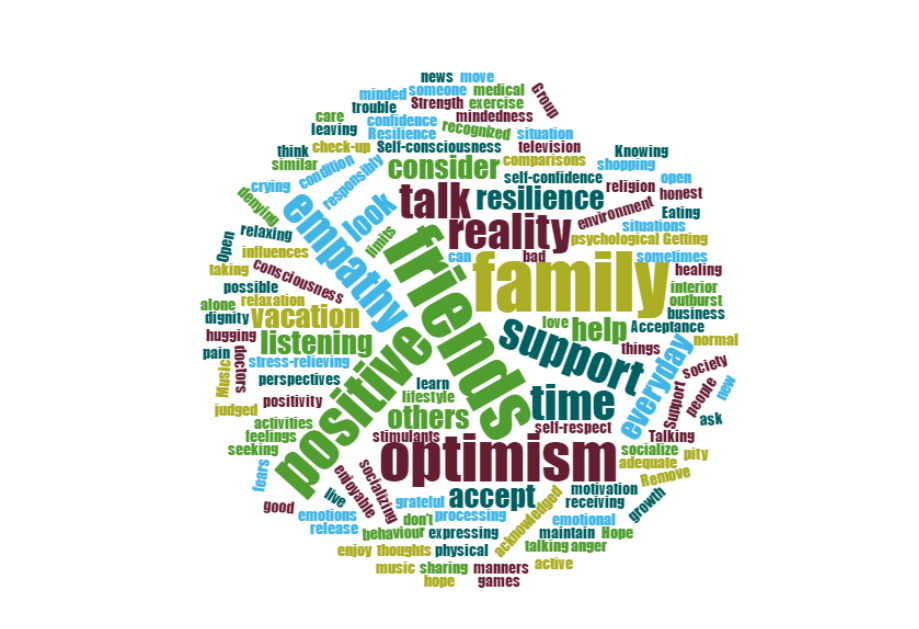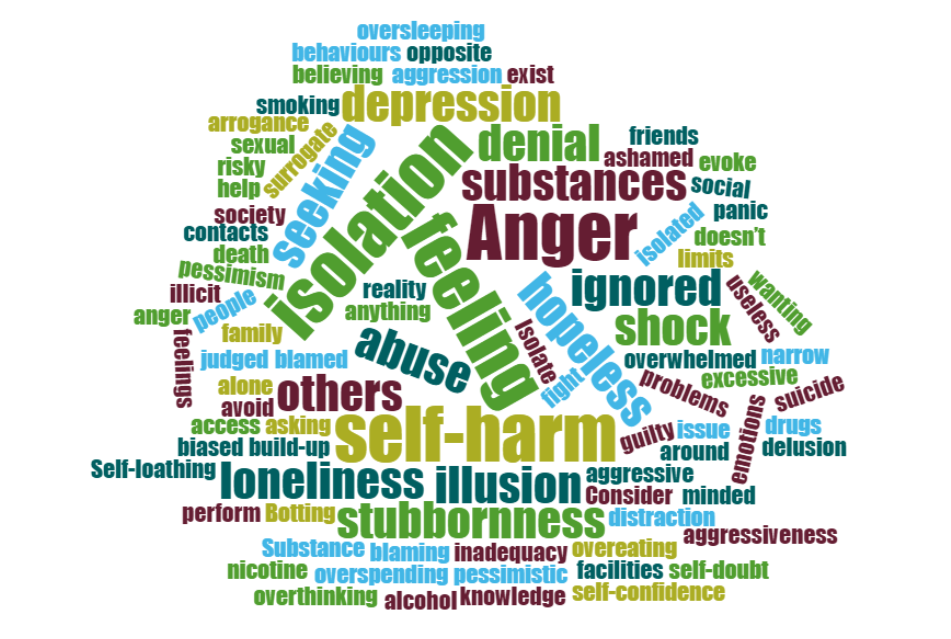Cover picture: Desert Spring By Annalisa Barelli


I get into the class to speak about narrative medicine and coping. My audience is made by students of the very first year of medicine education: on the boards, biochemistry formulas welcome me.
Indeed, I’m the bringer of a “humanistic” subject in comparison to the huge amount of scientific subjects that they are studying.
Why I am interested in let them understand what coping is: because the learning to handle and master stress situations, and the disease quite often induces stress, it is a mandatory step for every aid professional. How does narrative medicine fit in? It is precisely in the told orally or written narratives, patient testimonials, that one can identify if those factors that Carver explained so well for coping : optimism, openness, agreableness, responsibility and awareness. Vice versa the impedimental factors to coping are isolation, denial of the problem and obsessive thought.
I explain to the young students what is narrative medicine and what is coping, and they are very attentive, despite the “anomaly” of this subject into a medical school at the first year, I write to them, divided in groups. However, I don’t tell them what are the factors of development of this treasure: nor those opposed. They, devided in groups, have to write them.
Here are the “wonders” produced:below they are all listed, but here, a few key aspects between positive and negative variables deserve a special mention:
The plus for coping:
-love, aging, positive environment, music, taking holidays, relax, share your thoughts, talk alone, cry, get rid of the anger and pain, ask for help by curers and religion, have time
The minus fo coping:
-Don’t look for help, arrogance, stubbornness, disgust and shame of oneself, blaming the others and self blaming, being pessimistic
In short, we have a lot to learn from open minds and enthusiastic young people. A special acknowledgment to Matteo Nunner who analysed the coping definitions of the students and prepared the word clouds.
+ Acceptance, optimism.
– Anger, shock, denial, panic.
*
+ Open mindedness, resilience, enjoy the everyday things, motivation, love, self-confidence, stress-relieving, positive psychological and physical environment.
– Not seeking help, not seeking knowledge, stubbornness, arrogance, loneliness, no access to facilities.
*
+ Music, exercise, sharing thoughts, hugging, leaving on vacation.
– Substance abuse, risky sexual behaviours, smoking, overeating, oversleeping, self-harm, overspending, avoid social contacts.
*
+ Eating, talking to people, socialize, crying, relaxing activities, games, television, shopping, vacation.
– Botting up emotions, alcohol, nicotine, aggressiveness, anger, suicide, self-harm, drugs, isolation.
*
+ Remove yourself from reality, grateful for the reality we live in, enjoyable stimulants, think positive, listening to music, responsibly taking care of business everyday.
– Self-loathing, self-doubt, loneliness, isolation, wanting to perform self-harm, illicit substances and the feelings they evoke.
*
+ Hope, empathy, consciousness, open minded, confidence.
– Being biased, hopeless, illusion, excessive self-confidence, overthinking, narrow minded, stubbornness.
*
+ Strength, resilience, healing, move on, hope, interior growth, dignity, positivity, optimism.
– Anger, delusion, illusion, depression, hopeless, death, shock, aggressive, surrogate reality.
*
+ Support from family and friends, maintain lifestyle when possible, talk with others in similar situations, learn to accept reality.
– Isolate from others, feeling ashamed and guilty, asking “why me?”, denial.
*
+ Talking with others, seeking new perspectives, active listening, being acknowledged, talk sometimes alone, empathy.
– Being overwhelmed by others, being isolated and ignored, being blamed for the problems, not having anything to fight for, feeling useless, not having any distraction.
*
+ Getting good support from friends and family, optimism, having a positive behaviour of the situation, look above the trouble, emotional outburst, release all anger, pain and fears.
– Being pessimistic, isolation, blaming family and people around you, believing that your issue doesn’t exist.
*
+ Knowing that you can have support from doctors, family, friends, psychologists, religion. Have time by yourself for processing the bad news and not denying them, accept it but then consider yourself normal, don’t pity yourself.
– Exactly the opposite.
*
+ Resilience, expressing emotions in an adequate manners, optimism, relaxation, socializing, positive influences.
– Anger build-up, depression, pessimism, feeling of inadequacy, aggression, substances abuse.
*
+ Self-consciousness, self-respect, time, ask for help, look for comparisons, consider own limits.
– Consider own limits.
*
+ Group, family and friends support, medical check-up and help, receiving empathy from family and friends, having someone to talk to, having your condition recognized by society and not judged, being honest about your feelings, time.
– Being alone, no friends. Being ignored or judged by society.

Pingback: “Coping Strategies that you may follow to cope with Verbal Bullying.” – Our Campaign